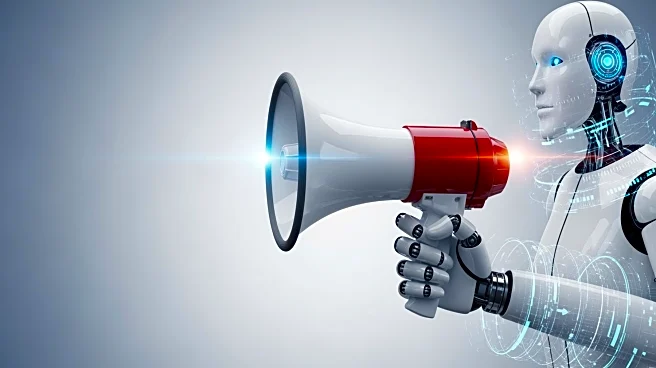What's Happening?
The marketing industry is grappling with the transformative impact of artificial intelligence (AI), as highlighted by a recent Forrester report predicting significant job losses. The report suggests a shift from traditional agency models to those centered
around software and data-driven solutions. This transition has sparked a mix of optimism and concern among industry leaders, with some viewing AI as a tool for efficiency and others fearing job displacement. The debate reflects a broader uncertainty about the future of the marketing landscape and the role of human creativity in an increasingly automated world.
Why It's Important?
The integration of AI into the marketing industry has profound implications for employment and business models. While AI offers opportunities for increased efficiency and profitability, it also poses challenges to traditional roles and the value of human creativity. The industry's response to these changes will shape the future of marketing, influencing how businesses operate and compete. The potential for job losses raises concerns about economic stability and the need for workforce adaptation, highlighting the importance of strategic planning and investment in skills development.
What's Next?
As the marketing industry navigates this period of transformation, companies will need to balance the benefits of AI with the preservation of human creativity and expertise. This may involve redefining roles, investing in training, and fostering a culture of innovation. The industry's ability to adapt to these changes will determine its resilience and success in a rapidly evolving technological landscape. Ongoing dialogue and collaboration among stakeholders will be crucial in addressing the challenges and opportunities presented by AI.
















